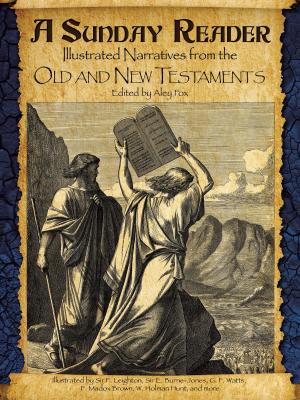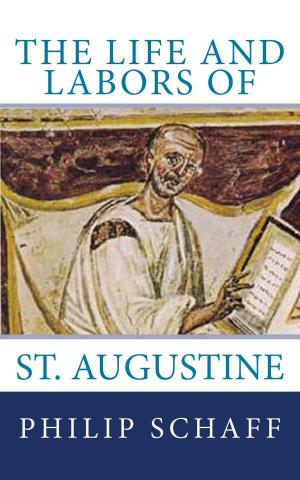The Gay Faith: Christ, Scripture, and Sexuality
Christ, Scripture, and Sexuality
Nonfiction, Social & Cultural Studies, Current Events, Political Science, Government, Local Government, Religion & Spirituality, Christianity, Christian Literature| Author: | M.W. Sphero | ISBN: | 9780955944093 |
| Publisher: | Herms Press | Publication: | July 15, 2012 |
| Imprint: | Language: | English |
| Author: | M.W. Sphero |
| ISBN: | 9780955944093 |
| Publisher: | Herms Press |
| Publication: | July 15, 2012 |
| Imprint: | |
| Language: | English |
What does the Bible really say about homosexuality? The answer may
very well surprise you. Did you know:
* The Old Testament does not prohibit homosexuality as we see it
today. Don't believe it? The Torah never forbids homosexuality when
examining original language and historical context; the Hebrew word
"Toevah" does not in fact mean "abomination" but rather "ritualistic
uncleanliness"; and Sodom and Gomorrah had nothing whatsoever to do
with homosexuality, but rather with arrogance, idolatry, and a
society's blood-thirst for violence. Likewise, all verses in both
the Old and New Testaments referring to these two cities
consistently state the same...without ever linking homosexuality in
any way whatsoever.
* The Old Testament speaks of a homosexual affair. The story of David
and Jonathan describes this in detail in I Samuel, and climaxes with
David saying of Jonathan: "Your love to me was more wonderful than
the love of women" in II Samuel 1:26...the chosen Hebrew word for
love used herein - "ahabah" - referring almost exclusively to a
romantic form of love throughout the Bible.
* Christ said that some people were meant to be born gay. Can't
believe it? Matthew 19:12 - an important verse that many often miss,
ignore, or simply misunderstand - quotes Christ clearly stating that
"there are eunuchs who were born that way from their mother's
womb". He goes on to give three definitions of what a eunuch is,
including the above. Furthermore, the Greek word "eunoûchos" was
historically used to include homosexual people, and Christ's
listeners knew it.
* Christ seems to have blessed a gay relationship between a Roman
Centurion and his lover. In the Gospels of both Matthew and Luke, a
Centurion humbly asks Christ to come and heal his dying "entimos
duolos", or "special servant", as translated from the original
Greek. It was common in the Roman Empire for some homosexual men to
take on a legally-binding relationship to provide rights and legal
protection to their same-sex partner. The Gospel writers realised
what connotation this phrase carried in reference to a gay
relationship, and used it anyway.
* Paul never condemned homosexuality. Unbelievable? The Greek term
used by Paul - arsenokoit - has consistently meant "trader of
homosexual slavery" in both religious and secular texts - not simply
"homosexual" as most scholars now agree. Could Paul have actually
been defending homosexuals against Greek cult-related slavery?
Organised religion has become a hindrance to a genuine personal faith
in God due to its often times lack of understanding or overt misuse of
scripture. To misuse the Bible by quoting a mere handful of so-called
"clobber passages" that do not actually state what they are commonly
claimed to say is to lie about what scripture affirms, and to become a
stumbling block to millions of homosexual people who yearn to have a
personal relationship with Christ with guilt-free assurance, inner
peace, and self-acceptance - as He Himself accepts them.
Many more issues on how the Bible is accepting of homosexuality are
examined herein. The Gay Faith explains - in clear, verifiable, and
easy-to-read detail - just how scripture supports homosexuality as a
birthright and lifestyle. In order to avoid distraction from the
primary concepts within each chapter - cited scripture, recognised
scholarly sources, explorations into historical contexts, detailed
linguistic analysis to original language, and authoritative sources in
respective fields of study cleanly branch off from the main text and
into more complex endnotes and cross-references. Heterosexual-related
topics such as premarital sex, chastity, and more, are also shown to
have likewise been misused by religion to make many stumble in their
faith, and are examined in separate appendix sections. Printed version
additionally includes exhaustive index.
What does the Bible really say about homosexuality? The answer may
very well surprise you. Did you know:
* The Old Testament does not prohibit homosexuality as we see it
today. Don't believe it? The Torah never forbids homosexuality when
examining original language and historical context; the Hebrew word
"Toevah" does not in fact mean "abomination" but rather "ritualistic
uncleanliness"; and Sodom and Gomorrah had nothing whatsoever to do
with homosexuality, but rather with arrogance, idolatry, and a
society's blood-thirst for violence. Likewise, all verses in both
the Old and New Testaments referring to these two cities
consistently state the same...without ever linking homosexuality in
any way whatsoever.
* The Old Testament speaks of a homosexual affair. The story of David
and Jonathan describes this in detail in I Samuel, and climaxes with
David saying of Jonathan: "Your love to me was more wonderful than
the love of women" in II Samuel 1:26...the chosen Hebrew word for
love used herein - "ahabah" - referring almost exclusively to a
romantic form of love throughout the Bible.
* Christ said that some people were meant to be born gay. Can't
believe it? Matthew 19:12 - an important verse that many often miss,
ignore, or simply misunderstand - quotes Christ clearly stating that
"there are eunuchs who were born that way from their mother's
womb". He goes on to give three definitions of what a eunuch is,
including the above. Furthermore, the Greek word "eunoûchos" was
historically used to include homosexual people, and Christ's
listeners knew it.
* Christ seems to have blessed a gay relationship between a Roman
Centurion and his lover. In the Gospels of both Matthew and Luke, a
Centurion humbly asks Christ to come and heal his dying "entimos
duolos", or "special servant", as translated from the original
Greek. It was common in the Roman Empire for some homosexual men to
take on a legally-binding relationship to provide rights and legal
protection to their same-sex partner. The Gospel writers realised
what connotation this phrase carried in reference to a gay
relationship, and used it anyway.
* Paul never condemned homosexuality. Unbelievable? The Greek term
used by Paul - arsenokoit - has consistently meant "trader of
homosexual slavery" in both religious and secular texts - not simply
"homosexual" as most scholars now agree. Could Paul have actually
been defending homosexuals against Greek cult-related slavery?
Organised religion has become a hindrance to a genuine personal faith
in God due to its often times lack of understanding or overt misuse of
scripture. To misuse the Bible by quoting a mere handful of so-called
"clobber passages" that do not actually state what they are commonly
claimed to say is to lie about what scripture affirms, and to become a
stumbling block to millions of homosexual people who yearn to have a
personal relationship with Christ with guilt-free assurance, inner
peace, and self-acceptance - as He Himself accepts them.
Many more issues on how the Bible is accepting of homosexuality are
examined herein. The Gay Faith explains - in clear, verifiable, and
easy-to-read detail - just how scripture supports homosexuality as a
birthright and lifestyle. In order to avoid distraction from the
primary concepts within each chapter - cited scripture, recognised
scholarly sources, explorations into historical contexts, detailed
linguistic analysis to original language, and authoritative sources in
respective fields of study cleanly branch off from the main text and
into more complex endnotes and cross-references. Heterosexual-related
topics such as premarital sex, chastity, and more, are also shown to
have likewise been misused by religion to make many stumble in their
faith, and are examined in separate appendix sections. Printed version
additionally includes exhaustive index.















